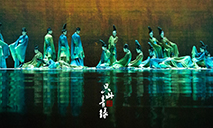Science award signals China's inroads on frontier of 'deep blue' (4)

The computing power of quantum computers can grow exponentially as the number of controllable quantum bits increases. Unlike classical computer bits, which present data as either a 0 or a 1, quantum bits, or qubits, can exist in a superposition that allows them to represent a 0 or a 1 at the same time.
As a result, quantum machines can take computational shortcuts when simulating extremely complex scenarios, whereas conventional computers have to bulldoze their way to a solution, taking significantly more time in the process.
In December, the journal Science reported that Pan and his team had created the world's first light-based prototype quantum computer, called Jiuzhang. It can perform an extremely difficult calculation known as Gaussian boson sampling in 200 seconds. The same task would take the world's fastest classical supercomputer, Fugaku, around 600 million years.
Pan has said that Jiuzhang's number of manipulable qubits has been increased from 76 to 113, thus boosting its computing power by at least 10 orders of magnitude.
Pan said this astonishing computing power can be used in cryptography, weather forecasting, financial analysis, drug design and running simulations for chemistry and materials science.
However, current quantum machines are still prone to external interference and typically excel only in highly specific tasks.
"We hope to achieve coherent manipulation of millions of qubits over the next decade, thus laying the foundation for a general-purpose quantum computer," he said.
 |
Photos
Related Stories
- Central authorities' measures benefit Hong Kong's I&T development: HKSAR official
- With new bourse, China's capital market strides forward in supporting innovation
- Chinese youth launch projects tackling climate change with innovation
- Senior legislator urges innovation-led revitalizing of northeast China
- China mulls law revision to advance innovation in science, technology
Copyright © 2021 People's Daily Online. All Rights Reserved.










